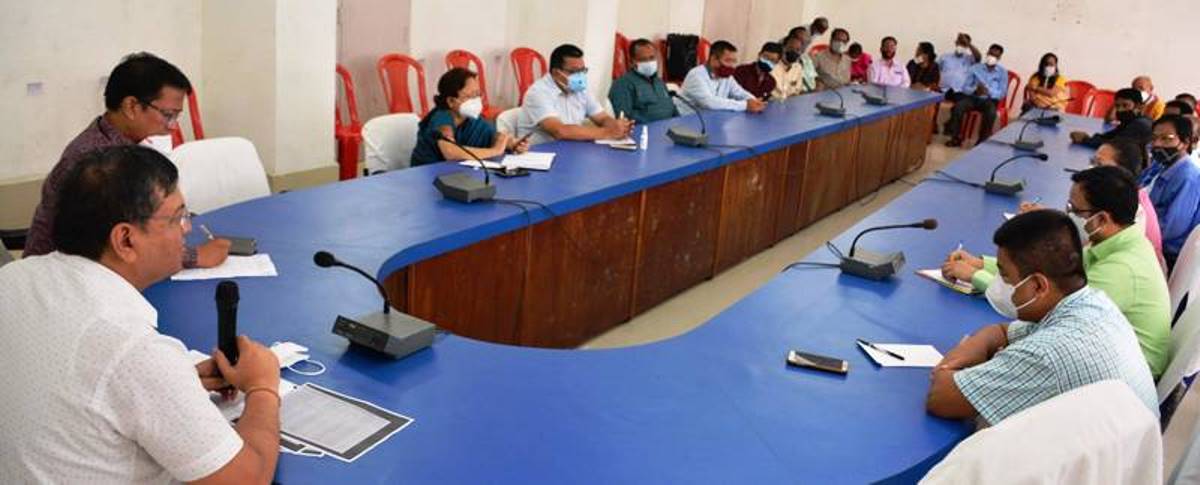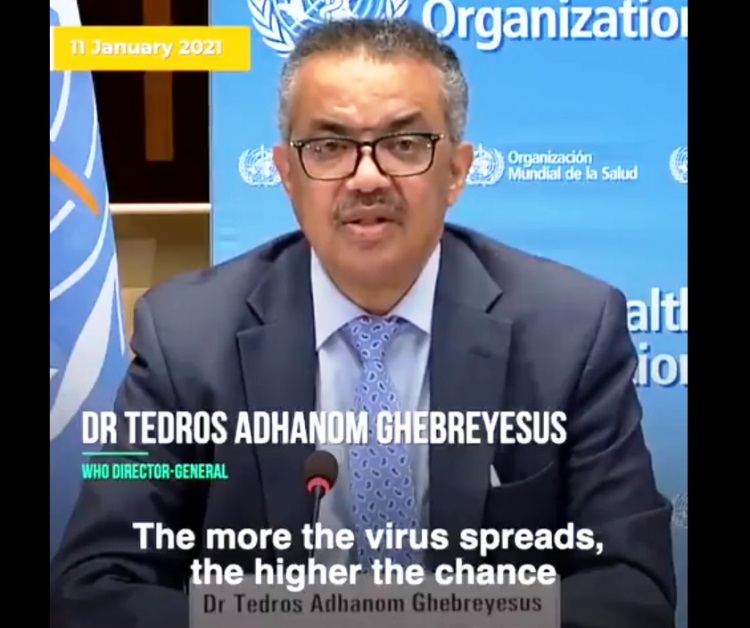Amid mounting concerns regarding Covishield’s safety and the acknowledgment of potential adverse effects by its maker UK giant AstraZeneca, public unease is on the rise, with calls for accountability, says Archana Jyoti
 KRC TIMES Desk
KRC TIMES Desk

Archana Jyoti
Amid mounting concerns regarding Covishield’s safety and the acknowledgment of potential adverse effects by its maker UK giant AstraZeneca, public unease is on the rise, with calls for accountability, says Archana Jyoti
My CT scan result showed that they (doctors) had never seen anything like this before. Numerous blood clots were removed through surgery from my legs and lower abdomen, Alex Mitchell, a key litigant in the legal proceedings in the UK against British pharma giant AstraZeneca told a news channel in India about the side effects that he suffered after receiving the COVID vaccine.
Mitchell is not the only one who has been reeling under the side effects due to the COVID jab and taken up a legal battle against AstraZeneca over allegations linking its vaccine to fatalities and severe adverse effects.
The firm is facing at least 51 such cases and has recently conceded that its vaccine could, albeit exceedingly rarely, induce Thrombosis with Thrombocytopenia Syndrome (TTS), a medical condition characterized by abnormally low levels of platelets and the formation of blood clots.
With this admission by the UK pharma giant, in India, the Serum Institute of India (SII), headquartered in Pune, which was a licensee to AstraZeneca’s vaccine formula may too find itself mired in potential legal ramifications with the parents of a young woman who died purportedly due to complications arising ten days post her inoculation with the vaccine in 2021 said that they are contemplating legal action against both SII and AstraZeneca.
Though a section of legal experts say that SII may get clean chit in the case given it was a mere manufacturer of the jab, Venugopalan Govindan, bereaved father of the deceased Karunya has expressed profound dissatisfaction with AstraZeneca’s belated admission, lamenting its timing vis-à-vis the lives already lost. He also castigated SII for its failure to suspend vaccine distribution following the restriction imposed by 15 European nations due to reported incidents of blood clot-related fatalities in March 2021.
Govindan has also implicated governmental agencies, regulatory bodies, and other stakeholders in the unfortunate demise of his daughter and numerous others post-vaccination. His sentiments have reverberated across social media platforms following AstraZeneca’s acknowledgment of its COVID jab’s potential to precipitate blood clotting.
Govindan spearheaded a petition titled ‘Post-vaccination side effects – Blood clots, MIS-A, etc. Awareness was required’ shortly after his daughter’s tragic demise in 2021. As the petition gained traction, it served as a platform for individuals to share their own experiences, concerns, and opinions regarding COVID-19 vaccines.
For instance, one Shikha Bhalla, a netizen, has given her account of losing vision in her left eye due to a rare side effect underscoring the importance of thorough monitoring and reporting of adverse events. Another netizen Parikshit Suri has emphasized on the rigorous testing and transparency in vaccine development and echoed widespread calls for accountability and scrutiny in the approval process.
Dr. A Rajkumar Sreenivasan’s plea for informed consent highlighted the ethical dimensions of healthcare decision-making, emphasizing the need for individuals to have agency and autonomy in vaccination choices. Michelle Zeh’s skepticism about vaccine necessity and safety shed light on broader concerns surrounding pharmaceutical influence and the importance of evidence-based decision-making.
Manish Kumar’s observation of increased heart attacks post-vaccination prompted calls for comprehensive investigation and surveillance to ensure the ongoing safety and efficacy of vaccination programs. While many doctors have said that benefits outweighs the downsides Dr Sankha Shubhra Chakrabarti, Head-Geriatrics, IMS-BHU posted on X, @these genius Indian doctors who are self consoling by saying it occurs within few weeks and cannot after 3 years probably do not know how the AdenoV delivery system is designed to work.@
Amidst these concerns and controversy over the safety aspects of the Covishield vaccine, the matter has now reached the Supreme Court on May 1, 2024, with a petition led by advocate Vishal Tiwari adding a layer of complexity and urgency to the discourse. Tiwari has sought the constitution of an expert medical panel to study the risk factors.
“More than 175 crore doses of Covishield have been administered in India. After Covid 19 there has been an increase in deaths due to heart attacks and sudden collapse of persons. There have been several cases of heart attack even in youngsters. Now after the document filed in UK court by the developer of Covishield, we are compelled to think on the risk and hazardous consequences of Covishield vaccine which have been administered to the citizens at a large number,” the petition filed by advocate Tiwari says.
The plea points out that AstraZeneca, the company that developed the vaccine, has said that its AZD1222 vaccine against Covid-19, which was made under license in India as Covishield, could cause low platelet counts and the formation of blood clots in rare cases.
The petition says the medical panel should be headed by an expert from AIIMS and supervised by a retired Supreme Court judge.
Tiwari has further sought directions to the Centre to establish a ‘Vaccine Damage Payment System’ for citizens or families who have suffered debilitating health setbacks or even deaths after taking the vaccine.
The plea has also called for strict action against the circulation of spurious Covishield, an offshoot of the AstraZeneca COVID-19 vaccine, which underwent extensive administration across India. However, SII, conspicuously headquartered in Pune, has remained reticent in response to the looming specter of legal action. Equally intriguing is the silence maintained by the Union Health Ministry, notwithstanding mounting apprehensions and criticisms voiced by recipients of Covishield on various social media platforms.
Delhi Health Minister Saurabh Bharadwaj has already raised the Centre’s attention to these links, saying that it should work to urgently address the alleged side-effects of the Covidshield vaccine as millions of people in India were administered the shit during the Covid pandemic. Bharadwaj expressed concern over the alleged link between the vaccine’s side effects and a series of sudden deaths in India, claiming that Covidshield was banned in several European countries, including Germany, France, Spain, Finland, Norway, and Denmark.
Despite the government’s formation of a national committee to probe such occurrences, the determination of insufficient evidence linking her demise to the vaccine underscores the intricate challenge of establishing causality in rare adverse events. However, the narrative shared by individuals such as Govindan underscores the exigency for robust surveillance, reporting mechanisms, and support infrastructure to address post-vaccination complications comprehensively.
Against the backdrop of Covishield’s legal conundrum, SII’s competitor Hyderabad-based Bharat Biotech, has underscored the efficacy of its jab, Covaxin, saying that it was meticulously evaluated and efficacy. Rials were held within India.
Symptoms of TTS
A rare condition associated with Covishield, include severe headaches, abdominal pain, leg swelling, or shortness of breath, usually appearing two weeks post-vaccination. Timely identification and intervention are crucial in mitigating severe consequences.
BIG NUMBER
India’s vaccination campaign began on January 13, 2021, administering Covaxin and Covishield. Covishield received approval for use in 49 other countries. As of April 29, 2024, India has administered 1,749,417,978 doses of Covishield, making it the world’s largest vaccination program. India’s vaccine arsenal during the pandemic included Covaxin, Covishield, Sputnik-V, Covovax, Corbevax, and ZyCoV-D, among others. Worldwide, 13.5 billion COVID-19 vaccines have been administered since the start of the COVID-19 pandemic, according to science research organization Our World in Data. Around 71% of the world’s population has received at least one dose of a Covid vaccine.
GLOBAL INSIGHT
According to global data on TTS available in the public domain, as of January 5, 2024, Canada had reported 89 cases of TTS, of which 56 cases were reported following vaccination with AstraZeneca’s Vaxzevria/Covishield COVID-19 vaccine, and 24 cases were reported following vaccination with Pfizer-BioNTech’s Comirnaty COVID-19 vaccine. Eight cases were also reported following vaccination with Moderna’s Spikevax COVID-19 vaccine. In the U.K., 122 instances of TTS following the administration of the AstraZeneca vaccine have been reported as of November 2023.
OPP MAKES A Gibe
Where is the Thank You Modi ji banner now? Why are the PM and Health Ministry silent? Is this the reason why deaths due to heart attack at young age occur? Was this the reason why BJP took electoral bonds worth Rs 50 crore from Serum Institute? This issue is not a matter of politics but of safeguarding people’s lives,” Srinivas Bhadravathi Venkata, the National President of the Indian Youth Congress in a post on X.
Doctors speak
TTS is a very rare condition resulting from an abnormal immune response. While it has several causes, it has also been linked with adenovirus vector vaccines. The WHO has deemed the vaccine safe and effective for all individuals aged 18 and above. …We are yet to fully understand the impact of coronavirus on people, also called long Covid. The difficulty is to distinguish between the complications that are caused by Covid itself or the vaccine. That remains debatable. People who are vaccinated have an overall lower risk of complications such as post-Covid heart attacks and strokes among others.
— Dr Ravi Wankedekar, Former national president of the IMA
“Like many things in medicine, the exact mechanism for this is also unknown. It is an unusual immune reaction to a particular vaccine genre which is called as adenovirus vector vaccine. Adenovirus vectors are not disease-causing viruses but these are artificially fitted with the spike of the virus that our immune system needs to fight. In the case of AstraZeneca’s adenovirus vector vaccine, a chimpanzee adenovirus – ChAdOx1 – has been modified to enable it to carry the Covid-19 (SARS-CoV-2) spike protein injected into the muscles of humans.”
— Dr Rajeev Jayadevan, Co-Chairman, IMA Covid-19 task force
Study confirms higher risk of very rare clot with AstraZeneca Jab
The Global Covid Vaccine Safety Project conducted an extensive analysis of adverse events associated with COVID-19 vaccines across multiple regions, including Argentina, Australia (New South Wales and Victoria), Canada (British Columbia and Ontario), Denmark, Finland, France, New Zealand, and Scotland. They employed a method called observed versus expected (OE) ratios to compare the number of adverse events reported with the expected baseline rates.
In simple words, this means first healthcare providers have a baseline ‘expectation’ of how many adverse events are likely given a certain number of vaccinated people, and compare it with the number of events reported to health systems.
Expectations are formed based on experience with the rates of vaccination, and reactions observed historically. However, COVID-19 vaccination was an outlier event that saw billions of vaccines administered over a relatively short span.
OE ratios greater than 1.5, indicating 50% more adverse reactions than expected, were identified as potential safety signals requiring thorough investigation. Notable findings included elevated OE ratios for Guillain-Barré syndrome and cerebral venous sinus thrombosis following the first dose of the ChAdOx1 vaccine.
Additionally, acute disseminated encephalomyelitis showed a high OE ratio following the first dose of the mRNA-1273 vaccine. Increased OE ratios for myocarditis and pericarditis were also observed following vaccination with BNT162b2 (Pfizer/BioNTech), mRNA-1273 (Moderna), and ChAdOx1 (AstraZeneca/Serum Institute of India) vaccines.
In India, as of December 6, 2022, a total of 92,003 Adverse Events Following Immunisation (AEFI) were reported, accounting for approximately 0.009% of the population vaccinated against COVID-19. However, it's essential to note that the strength of adverse event reporting systems can vary significantly between countries, influencing reported incidence rates.
The study also highlighted differences in adverse event reporting rates between regions. For example, the affidavit submitted by the Indian government to the Supreme Court cited higher AEFI rates in the United States (0.2%) and the United Kingdom (0.7%) compared to India. These variations may be influenced by reporting system robustness and physiological factors.
Despite confirming previously identified rare safety signals associated with COVID-19 vaccination, the study emphasized the need for further investigation to confirm associations and evaluate clinical significance. An affidavit by the government to the Supreme Court claimed that compared with India, nearly 0.2% of the people in the United States who received COVID-19 vaccines showed AEFI, as did 0.7% in the U.K.
These ratios are, however, significantly influenced by the strength of the adverse event reporting system in countries. This can significantly vary among countries.
“While our study confirmed previously identified rare safety signals following COVID-19 vaccination and contributed evidence on several other important outcomes, further investigation is warranted to confirm associations and assess clinical significance,” the study by the Global Covid Vaccine Safety Project said.
“There have been studies that show the baseline rate in European states (adverse events related to COVID-19 vaccines) is higher than Asia. This is a combination of both a better reporting system as well as physiological factors. Studies done in one country may not easily translate to another.”
Advertisement | 5E for Success






